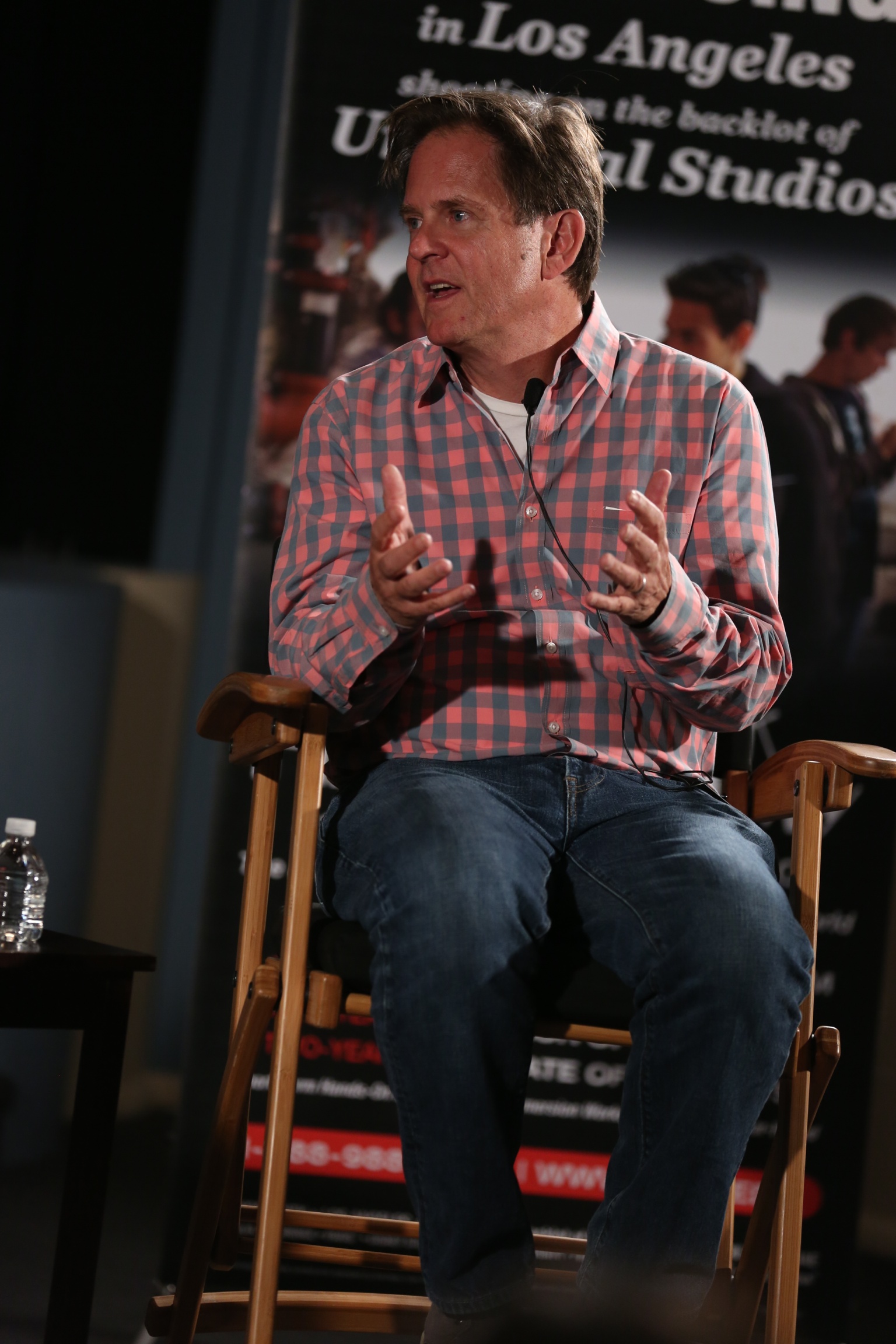This Monday, the New York Film Academy hosted a screening of ABC’s Brothers and Sisters with executive producer/show-runner David Marshall Grant. The event was moderated by Producer, Tova Laiter.
In addition to Grant’s success in television as Executive Producer/show-runner of NBC’s Smash and ABC’s Brothers & Sisters, he is an accomplished actor and playwright. His first play, Snakebit, was nominated for both a Drama Desk Award and Outer Critics Circle Award. His second play, Current Events, was produced by the Manhattan Theatre Club in 2000. His most recent play, Pen, opened in 2006 at Playwrights Horizons. As an actor, Grant is best known for playing opposite Richard Gere in Broadway’s Bent and for his Tony-nominated performance in Angels in America. His acting credits include film and television work in such projects as The Devil Wears Prada, The Stepford Wives, The Rock, Air America, And the Band Played On, Citizen Cohn, thirtysomething, Eli Stone, and Party Down.
 After attending the Yale School of Drama, David went to the Eugene O’Neill Playwrights Conference in Connecticut where he did a workshop of Bent. He was very lucky to experience immediate success right out of school when the production, which was bound for Broadway, asked him to star opposite Richard Gere. “So much of life is what fate brings you, and so much of life is what you bring when fate shows up,” said Grant.
After attending the Yale School of Drama, David went to the Eugene O’Neill Playwrights Conference in Connecticut where he did a workshop of Bent. He was very lucky to experience immediate success right out of school when the production, which was bound for Broadway, asked him to star opposite Richard Gere. “So much of life is what fate brings you, and so much of life is what you bring when fate shows up,” said Grant.
It was during his time at the playwright’s conference that David became fascinated with story and by the idea that the way an actor’s mind thought could actually help you as a writer. This kept gnawing at him until one summer he began to write a play. He wrote 23 pages the first day, assuming he could have the production up and running in no time. However, he ended up working on the play for five years and it was never produced despite his efforts.
When his acting career stalled after Bent, David started taking writing more seriously. His second play was entitled, Snakebit. It was twelve years before this film was produced on a very small scale at Grove Street Theater in New York. There was an audience of 53 people. One of these people was Peter Marks of The New York Times. Marks wrote a great review of the play, and the next day everyone was calling David. It seemed there was a renewed interest in him.
At the time, David was auditioning for episodic television and not getting the parts, so he decided to “open the door that wasn’t locked” and become a writer. Although, even that became an immense struggle for David. Five or six years later, John Robin Bates called David and asked him if he wanted to be a story editor on Brothers and Sisters, and he hasn’t stopped working since then.
David always tries to impress on his students that, “Failure is the norm,” and this industry is a long game. “You’ve got to keep your eye on the prize, and if it doesn’t happen today, it might not happen for the next five years. But that doesn’t mean you give up.”
David was also one of the first brave actors to play gay characters, like he did in Bent, when other actors (straight or gay) wouldn’t. This was also at a point when David hadn’t been out with the public. In thirtysomething, David took the opportunity to play a gay character, even though he was convinced it would ruin his career. He brought up the point that there hasn’t been a major movie actor that has come out yet. You can’t be Brad Pitt or Tom Cruise and be known as gay.
QUESTION: Can you give advice to actors who want to transition into producing?
DAVID: An actor’s job should always be to figure out how he or she can support the STORY—understand what your place in the story is. You are a part of the larger thing—and that thing is everything—STORY.
QUESTION: What are some of the roles of a show-runner?
DAVID: Your first job is to come up with a story every week. You follow the story. Also, it’s about navigating personalities—the demands of the studio and the actors on the script. That’s what the show-runner does. In the process of pushing that story up the hill, he deals with every human being that touches that story.
David’s story was inspirational in regards to the success one can achieve in this industry through endurance and never giving up. He made the point to say that you must consciously inspire yourself. “It really works by failing every single day, until the world sees,” he concluded.